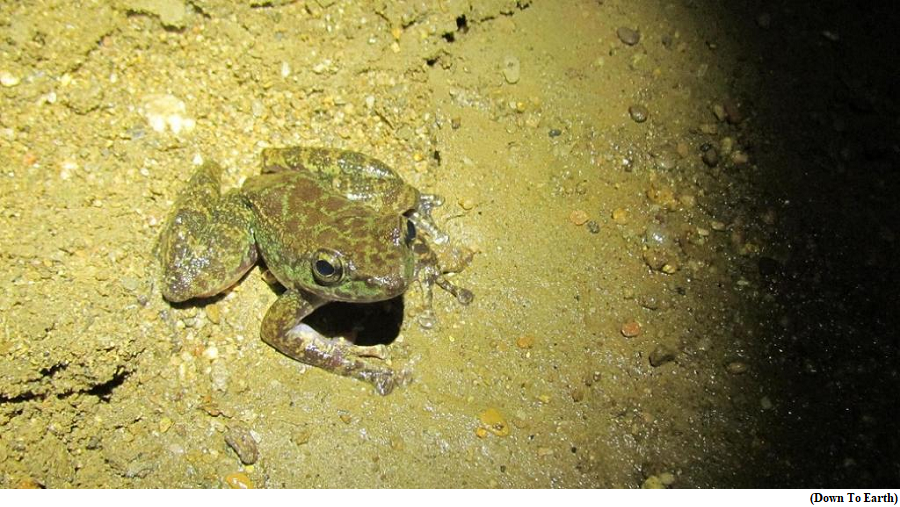India improves its ranking by 6 spots in global Business Environment Rankings (BER) (GS Paper 3, Economy)

Why in news?
- India improved its ranking by six spots in the latest Business Environment Rankings (BER) globally, according to data released by the Economist Intelligence Unit (EIU).
- The upward shift is due to its improved score in parameters like technological readiness, political environment, and foreign investment among others.
Details:
- The BER measures the attractiveness of the business environment in 82 countries on a quarterly basis across 91 indicators.
Key Observations:
- Though India has historically struggled to attract manufacturing investment, policy reforms are making it easier to do business in India.
- The report states that although south-east Asian economies have been the principal beneficiaries of the supply-chain diversification, in the long term, it is India that offers a potential scale comparable to that of China due to its huge domestic market.
- Of the 17 economies in the Asian region, India is ranked 10th in the 2023- 27 forecast period, up from 14th in 2018-22 period.
India’s regional BER in labour markets:
- The report forecasts India’s working-age population to expand by almost 100 million in the period to 2030, pushing it comfortably past 1 billion, while that of China will fall by 40 million to under 950 million.
- However, despite the ample supply, huge labour regulation and skilling remains a constraint.
- As a result, India’s regional BER in labour markets improved to 13th in 2023-27 from 16th in 2018-22.
India’s regional BER ranking for infrastructure:
- India’s regional BER ranking for infrastructure improved to 10th in 2023-27 from 14th in 2018-22 through a host of government initiatives to boost infrastructure in the country.
India in technological readiness:
- India scores in the top 10 in technological readiness because of a more conducive environment for e-commerce and enhancement of information technology-ready government services.
Performance of other nations:
- The rankings for the second quarter of 2023 show that Singapore, Canada, and Denmark will be the three countries with the best business environment over the next five years.
- Due to deterioration in business environment in China as a result of greater policy uncertainty, tensions with the United States and reorientation of supply chains by firms, its ranking fell by 11 spots globally in the second-quarter compared with a year earlier.
- Asian countries like Vietnam emerged as the biggest gainer as it improved its position by 12 spots globally, followed by Thailand and Belgium.
Juice Mission
(GS Paper 3, Science and Tech)
Why in news?
- Recently, the European Space Agency launched its maiden mission to explore the moons of the largest planet in the solar system.
- The Jupiter ICy Moons Explorer (Juice) mission launched onboard Europe's Ariane-5 rocket to the outer solar system.

Details:
- The spacecraft will have to negotiate its way around the vacuum of space for the next years, aided by several gravity assists from Earth and Moon to gain speed towards Jupiter before it is pulled into orbit by the planet's strong gravity.
- The European Space Agency said that the first of four gravity-assist flybys in the inner Solar System will take place in August 2024 with a lunar-Earth gravity-assist – a flyby of the Moon followed 1.5 days later by one of Earth.
Objective of the Mission:
- Jupiter boasts a whopping list of 92 moons and among them lie some of the biggest lunar worlds in the solar system. But what makes them even more interesting is that some of these moons harbour oceans that contain more water than those on Earth.
- The spacecraft will study Ganymede, Europa, and Callisto in detail.
- Scientists hope that the moon’s buried oceans could tell whether life can arise in different environments across the cosmos.
- The objective is to explore the moons for habitability and to explore if it is possible to live around giants.
Instruments:
- During its mission, the probe will characterise the oceans, icy shells, compositions, surfaces, environments, and activity of Ganymede, Europa, and Callisto, and the wider Jupiter system.
- The spacecraft has been packed with a set of 10 instruments comprising the most powerful remote sensing, geophysical, and in situ payload ever flown to the outer Solar System.
Way Forward:
- Juice will join NASA’s Juno spacecraft around Jupiter and will follow the path of Voyager-1, 2 missions that showed Jupiter in new light.
- Juice could go a step further into unravelling the Jovian world, which in itself is a mini-solar system.
New frog species found in Meghalaya Siju cave
(GS Paper 3, Environment)
Why in news?
- Researchers from the Zoological Survey of India (ZSI) have discovered a new species of frogs from deep within the Siju cave in the South Garo Hills district of Meghalaya.
- Siju is a four-kilometre-long natural limestone cave.

Cascade Frogs:
- They named the new cascade ranid species Amolops siju after the cave from where this discovery was made.
- Cascade Frogs are named so because of their preference for small waterfalls or cascades in flowing hill streams.
Key Highlights:
- The genus Amolops is one of the largest groups of ranid frogs (family Ranidae) with currently over 70 known species that are widely distributed across northeast and north India, Nepal, Bhutan, China, through Indochina, to the Malaya Peninsula.
- The discovery of new species from a cave is very rare.
- This is the second time such a discovery has been made in India, the first being the discovery of the Micrixalus spelunca in 2014 from a cave in Tamil Nadu.
Background:
- The specimens of Amolops siju were collected in January 2020 during a cave expedition by the ZSI team. The tissue samples of the specimen were subjected to molecular studies to ascertain their specific identity from the other known species of cascade Amolops frogs.
- Although the specimens were collected 60-100 metres from the cave entrance and the dark zones beyond 100 m of the cave entrance, they did not find any troglobitic or cave-adapted modification, suggesting that this species of frog is not a permanent resident of the shelter.
Earlier Findings:
- This is the fourth new species of a cascade frog (Amolops) published by the same team recently.
- Amolops chanakya, Amolops terraorchis and Amolops tawang were discovered in Arunachal Pradesh.
Way Forward:
- Siju cave is currently known to harbour more than 100 animal species, mostly invertebrates like cave crickets, spiders, beetles, earthworms, among other.




